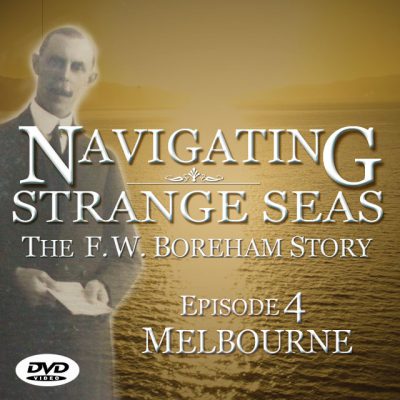home > books by FWB > 1914 Mountains in the Midst > Section 2, Chapter 5, CHRYSANTHEMUMS
V
CHRYSANTHEMUMS
I had been to a chrysanthemum show. I am not particularly fond of shows. Very few things are at their best when on exhibition, and even flowers look somehow excited and tumbled at these unnatural displays. The chrysanthemums did not seem quite themselves in the stuffy atmosphere of the crowded hall. Still, chrysanthemums are chrysanthemums; and even chrysanthemums on show are very lovely things. There is a certain flaunting abandon about chrysanthemums that one does not notice in other flowers. These waving tassels of white and purple and gold are very attractive, and the penetrating perfume is almost overpowering. And yet, with all their bravery, there is a certain indescribable sadness about these gorgeous blossoms. They are autumn visitants. And they seem to whisper of a glory that lingers about our path, even when all seems to be rushing to decay. ‘The narcissus, the rose, and the chrysanthemum — these,’ writes Mr. C. E. Shea, ‘are the natural emblems of our human life! Bright youth, with all before us, and no cloud to dim the sky—the narcissus. Maturity and power— the rose. And then, through the more sober and perhaps sadder period of later life, when sometimes a strong faith is needed to make us realize that the gathering clouds have still a silver lining, and that there remains behind them a sun which may yet shine for us — our floral help and cultivator, the chrysanthemum.’
I went home from the show. I sat for a moment or two before the fire, with my Bible for company. I sat captivated by those great words of Paul to the Philippians: ‘Be careful for nothing . . . and the peace of God, which passeth all understanding, shall guard your hearts and minds in Christ Jesus.’ I fear I must have dozed. For, all at once, I saw a garden. The bed was overgrown with weeds. Beside it stood the Master and the gardener. In His hand the Master held three rare and radiant chrysanthemums. They formed a perfect riot of floral glory. Their flowing petals were like fluttering tassels of beauty. Their fragrance was delicious. ‘Grow chrysanthemums like these,’ said the Master to the gardener, ‘ and I will bring you the seed of the sweetest Heart’s-ease with which to make a border round the bed.’ The gardener eyed the exquisite blossoms admiringly, and then, close to the Master’s fingers, he caught sight of a tiny label with which the wind was playfully toying. He straightway examined it. The gay chrysanthemums were labelled Cheerfulness — ‘Be careful for nothing.’ And then a look of wonderful insight and understanding overspread the countenance of the gardener. ‘Yes,’ repeated the Master deliberately, ‘if you can grow chrysanthemums like these in the bed here, I will give you the rarest Heart’s-ease for a border — “the peace of God which passeth all understanding.”’ The Master moved silently away, and left the gardener looking at the bed.
But, oh, it is one thing to talk about beautiful flowers, and it is another thing to grow them. For just look at the weeds! Rudyard Kipling was right when he sang:
Our England is a garden, and such gardens are not made
By singing ‘Oh, how beautiful!’ and sitting in the shade,
While better men than we go out and start their working lives,
At grubbing weeds from gravel-paths with broken dinner-knives.
Now, I happen to know quite intimately the gardener who tries to grow these glorious blossoms. And I know that that is precisely his difficulty. It is every gardener’s difficulty. ‘I have just turned gardener,’ says Lord Macaulay, in one of his charming letters to his sister; ‘I have just been putting creepers round my window, forming beds of rhododendrons round my fountain. I have had no friends near me, and no enemies but those execrable dandelions!’ Ah I those dandelions! Writing to his little niece, he says again: ‘I thought that I was rid of the villains; but the day before yesterday, when I got up and looked out of my window, I could see five or six of their great, flaring, yellow faces turned up at me. “Only you wait till I come down!” I cried. How I grubbed them up! How I enjoyed their destruction! Is it Christian-like to hate a dandelion so savagely? ‘That is precisely the trouble about gardening. It is not all poetry. It is largely perspiration. ‘All the old sadness is piled up in a garden,’ said the kindly Piper in Myrtle Reed’s Spinner in the Sun, ‘and there are weeds in every life.’ Exactly. I used to think that if I would have the Master’s Heart’s-ease — the peace that passeth all understanding — I had but to ask for it. I have learned since that the Master is wiser than that. He knows that the dandelions would smother it. And therefore He bids me cultivate chrysanthemums, for he knows that, by the time that these fair flowers are flourishing, the dandelions will all be dead.
Yes, He bids me grow chrysanthemums. Now, it is the glory of the chrysanthemum that it seems to defy its frigid and chilling surroundings. It flourishes amidst the frosts. Its brilliant petals are like waving tongues of flame blazing a grand and triumphant defiance to the wintry atmosphere which enfolds them. It is in its glory when all other flowers are dead. ‘Be careful for nothing,’ it seems to say. Be the conqueror, and not the slave, of your environment. No character in fiction has charmed us more than brave Mark Tapley. We have all fallen in love with him. He was for ever and for ever growing chrysanthemums. He saw no credit in being jolly when everything went well; but when others were ‘sae weary full o’ care’ he was ‘careful for nothing.’ His heart sang amidst the dreariest gloom. And even when disaster reached its climax in the pestilential American swamp, and when poor Martin Chuzzlewit’s heart was breaking with the cruelty and the chagrin of it all, then Mark was at his brightest and his best. Says Dickens: ‘When the log-hut had received them, Martin lay down on the ground and wept aloud. “Lord love you, sir,” cried Mr. Tapley in great terror; “don’t do that, don’t do that, anything but that; it never helped man, woman, or child over the lowest fence yet, and it never will; anything hut that. . . . Here we are . . . everything in its proper place, here’s the salt pork, here’s the biscuit, here’s the tin pot — this tin pot is a small fortune in itself — here’s the blankets, here’s the axe; who says we ain’t got a first-rate set-out ? I feel as if I was a cadet gone out to Indy, and my father was Chairman of the Board of Directors; here we are, sir, all complete. For what we are going to receive — Lord bless you, sir, it’s very like a gipsy party.”’ Mark Tapley was growing his chrysanthemums.
And chrysanthemums are worth growing, as Paul knew very well. I need not have come down to modern fiction for my illustration, after all. This very letter to the Philippians is as fine a chrysanthemum as I could desire. What a letter it is! It seems set to music. It is written in a wretched cell by an old man of tottering health, whose hopes are all shattered, whose plans are all thwarted, whose prospects are all in ruin and decay. Yet it fairly ripples with sacred mirth, and sings out bravely the gaiety of its writer’s heart. ‘Rejoice,’ the old prisoner cries, ‘rejoice in the Lord alway, and again I say, “Rejoice!” ‘It is like the blithe song of a nightingale in a darksome English lane. It is melody breaking out of misery. It is gaiety conquering gloom. ‘Be full of care about nothing,’ Paul says; and we see, as he says it, that he has himself learned his lesson well. His flowers are flourishing amidst the frosts. One who can grow chrysanthemums to such perfection is entitled to urge their culture upon others.
Some people have a perfect genius for growing chrysanthemums. There is on record a conversation between Daniel Webster and some of his illustrious compeers. Somebody raised the question as to which was the finest passage in the Bible. One argued for the Creation story, another for the Sermon on the Mount, and a third for the description of the redeemed in the book of Revelation. But Webster slowly quoted those exquisite verses from one of the minor prophets: ‘Although the fig-tree shall not blossom, neither shall fruit be in the vines; the labour of the olive shall fail, and the fields shall yield no meat; the flock shall be cut off from the fold, and there shall be no herd in the stalls: yet I will rejoice in the Lord, I will joy in the God of my salvation.’ ‘I am amazed,’ said Webster, ‘that no talented artist has seen there a subject for a masterpiece — the prophet Habakkuk sitting in the midst of his dreadful desolation, still praising God and rejoicing in his unseen Saviour!’ Habakkuk was ‘careful for nothing’ — he was growing chrysanthemums.
I think of Job singing amidst his maze of sorrow and mystery of pain: ‘Though He slay me, yet will I trust in Him.’ There was a chrysanthemum for you! I think of Uncle Tom shouting his jubilant camp-meeting choruses whilst the blood drawn by the slave-whip trickles down his back. I think of the Salvationist sister smiling her way, day after day, amidst the suffocating smells, the strident sounds, and the disgusting sights of a squalid London slum. I think of the missionary at his lonely outpost bravely maintaining his gracious witness amidst the apparently impregnable strongholds of superstition. I think of a bed-ridden sufferer whom it is my privilege to visit, and whose face is always radiant with a glory that hides the furrows ploughed by pain. I think of an old pilgrim of my acquaintance. His hair reminds you of the winter snows ; but the joy of his heart, as it escapes through his eyes, recalls the glorious blossoms that flourish amidst the frosts. ‘The outward man perishes,’ he says, ‘but the inward man is renewed day by day,’ These folk all know how to grow chrysanthemums.
But a story leaps to my mind that leads me higher still, and seems to leave both Dickens and Paul a long way behind. F. W. Robertson one day preached a great sermon on the insistence and sacredness of common duty. He seemed like a prophet of fire as he called on the people to do something worth while. A lady came to him in the vestry afterwards. ‘Such preaching will get you into trouble, Mr. Robertson!’ she said. ‘I don’t care!’ exclaimed the fervid and excited preacher. ‘Mr. Robertson,’ the lady expostulated, ‘do you know where “Don’t care” came to?’ ‘Yes,’ answered Robertson, ‘“Don’t care” came to the Cross!’ That was finely spoken. There was a divine carelessness about Jesus. He was careful for nothing. There were chrysanthemums growing on the hill called Calvary.
‘Grow chrysanthemums,’ said the Master to the gardener, ‘and I will give you Heart’s-ease for a border round the bed. The peace of God that passeth all understanding shall guard your hearts and minds in Christ Jesus,’ And the Master always keeps His word — always! I think at this moment of a pair of witnesses whom I could summon to prove it. After his splendid and triumphant warfare against slavery, William Wilberforce lay dying. His Quaker friend, J. J. Gurney, went to see him. The aged warrior was very frail and very feeble. He was swathed in flannels, and at the point of death. ‘But,’ says Gurney, ‘he unfolded his own experience to me in a highly interesting manner. He told me that the text on which he was then most prone to dwell, and from which he was deriving peculiar comfort, was this: “Be careful for nothing; … and the peace of God which passeth all understanding shall keep your hearts and minds through Christ Jesus.” While his frail nature was at the point of collapse, and his mortal tabernacle seemed ready to be dissolved, this peace was his blessed and abundant portion,’
Now, it so happened that, at just about the same time, the saintly Charles Simeon was also passing to his reward, and his friend J. M. Neale gives us an account of a very similar experience with the very self-same text, at the bedside of the dying Simeon. What does this coincidence mean? Is it mere chance? It is nothing of the kind. Read the context in both cases. See to what perfection these two devout and fervid souls had developed the grace of Cheerfulness! What masters they both were in the high art of growing chrysanthemums! They had become ‘careful for nothing,’ and therefore the peace of God which passeth all understanding was given with a royal hand. When we have torn out our dandelions, and have cultivated our chrysanthemums, the Master never forgets His promise, but rewards His patient gardeners with Heart’s-ease in abundance.
F.W. Boreham






0 Comments